What Is AI's Weakness?
What is AI's weakness? AI is often hailed as the future, but let’s be honest—it still has the common sense of a brick. Sure, it can analyze data at lightning speed, but ask it to tell a joke that isn’t stolen from a dad’s Facebook page, and you’ll see its limitations firsthand. Let’s dive into some of AI’s biggest weaknesses and have a bit of a laugh along the way.
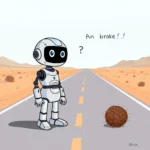
AI's Biggest Weaknesses
Lack of Common Sense (Or, AI's Natural Talent for Stating the Obvious)

AI might know the entire encyclopedia, but it still struggles with things a five-year-old understands. Want an example? Try asking AI whether you should brake for a tumbleweed. If it’s read enough traffic laws, it might say yes—completely missing the fact that a tumbleweed weighs less than your morning toast.
Researchers are working on solutions like knowledge graphs and neuro-symbolic AI, but for now, common sense remains AI’s Achilles’ heel. Until AI can grasp that putting metal in the microwave is a bad idea, it’s not coming for your job just yet.
Data Dependence (Garbage In, Garbage Out)
AI is only as good as the data it’s trained on. If you feed it biased or incomplete information, you’ll get results that make no sense—like a GPS that suggests you drive straight into a lake.
Regular data audits and better training methods help, but AI still doesn’t have the critical thinking skills to fact-check itself. It trusts whatever it’s fed, just like your uncle who believes everything he reads on social media.
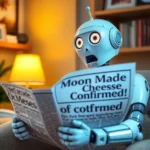
Limited Explainability (AKA The "Just Trust Me" Problem)
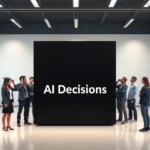
What is AI's weakness, have you ever had someone explain something so vaguely that you’re left more confused than before? That’s AI’s specialty. Many deep learning models operate as black boxes, making decisions that even their creators don’t fully understand.
This is a big problem in areas like healthcare and finance, where people
actually want to know why AI made a particular decision. When AI denies your loan or misdiagnoses a disease, "because I said so" isn’t an acceptable answer.
Narrow Expertise (Great at Chess, Useless at Life)
When it comes to chess at AI can beat grand masters, but still struggles to tie its virtual shoelaces. It’s brilliant at specific tasks but completely clueless when it comes to general knowledge.
So while it might help design a skyscraper, don’t expect it to write a bestselling novel anytime soon—unless you’re into stories that sound like they were written by an alien who just learned English yesterday.
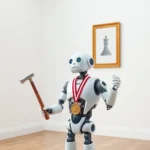
Lack of Creativity and Emotional Intelligence (AI: The World’s Worst Poet)
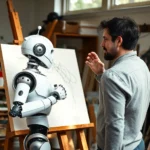
Creativity can be mimicked by AI, but it doesn’t have true originality. Ask it to create art, and you’ll likely get something that looks like a mashup of existing work. It can also analyze emotions but doesn’t actually feel anything—so if you need a sympathetic ear, you’re better off talking to your cat.
Artists and designers are using AI as a tool, but it's still a far cry from being the next Picasso. While AI can generate ideas, it still needs a human touch to make them truly meaningful.
Vulnerability to Adversarial Attacks (AI's Version of Being Easily Fooled)
You can trick AI with the digital equivalent of a banana peel. Small tweaks in input data can completely throw it off, which is a serious concern in cybersecurity and self-driving cars.
Hackers have been able to fool AI into misidentifying objects simply by changing a few pixels in an image. Imagine a self-driving car mistaking a stop sign for a speed limit sign—yeah, not great.

Ethical and Bias Issues (When AI Inherits Our Flaws)
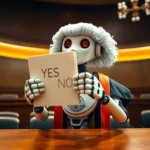
You know, AI doesn’t just inherit human intelligence—it also picks up our biases. If the training data is skewed, AI can end up making discriminatory decisions.
Solutions like fairness-aware algorithms and diverse development teams help, but bias in AI remains an ongoing challenge. If an AI model is trained mostly on Western data, for example, it might struggle to understand cultural nuances from other parts of the world.
Adaptability Challenges (AI Struggles with Change)
Throw AI into an unfamiliar situation, and it’s as lost as a tourist without Google Maps. Unlike humans, who can adjust to new environments quickly, AI relies on predefined patterns and struggles when the rules change.
It’s great at following scripts, but ask it to improvise, and it short-circuits faster than a cheap toaster.
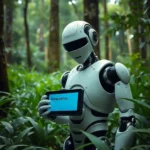
Resource Intensity (AI's Love for Expensive Toys)

AI is power-hungry—literally. Training and running AI models require huge amounts of computational power, making it expensive and raising concerns about its environmental impact.
While researchers are exploring ways to make AI more efficient, it still costs a small fortune to keep the lights on. So, until AI can run on a couple of AA batteries, it’s going to remain a pricey tool.
Addressing AI’s Weaknesses. The Ongoing Battle
The weaknesses of AI aren’t just theoretical—they impact real-world applications. So, how can we improve them?
Fixing AI’s Common Sense Deficit
• Knowledge Graphs: Helps AI understand relationships between things, so it stops making ridiculous assumptions.
• Neuro-Symbolic AI: Combines data-driven learning with rule-based reasoning for better decision-making.
• Embodied AI: Training AI in real-world environments so it learns like humans do.
Tackling AI’s Bias Problem
• Balanced Training Data: Ensuring datasets represent diverse populations.
• Algorithm Adjustments: Fine-tuning AI models to minimize bias.
• Ethical AI Guidelines: Clear frameworks for responsible AI development.
Can AI Ever Be Truly Creative?
Probably not—at least not in the way humans are. However, it can be a great tool for artists and designers by:
• Generating initial concepts for human artists to refine.
• Analyzing trends to offer new creative insights.
• Automating repetitive tasks so creators can focus on innovation.
The Future. AI + Human Collaboration
Just because AI may have its weaknesses, that doesn’t mean it’s useless. The real magic happens when AI works alongside humans, leveraging our strengths while compensating for its own flaws. What is AI's weakness? Basically it can't think or reason like a human
So, rather than fearing AI, think of it as your slightly clueless but well-meaning assistant—great for crunching data, but still in desperate need of human supervision.
Want to stay ahead of the AI game? Learn how to use it to your advantage with my free AI-powered content creation videos at DerekCBarrington.com.